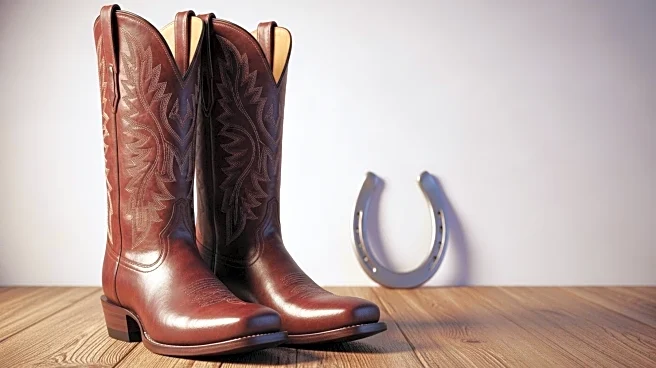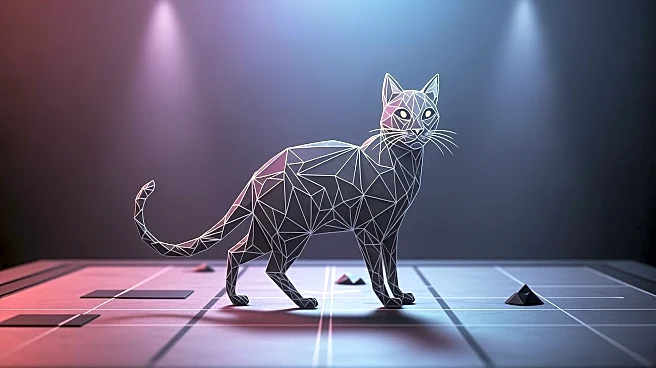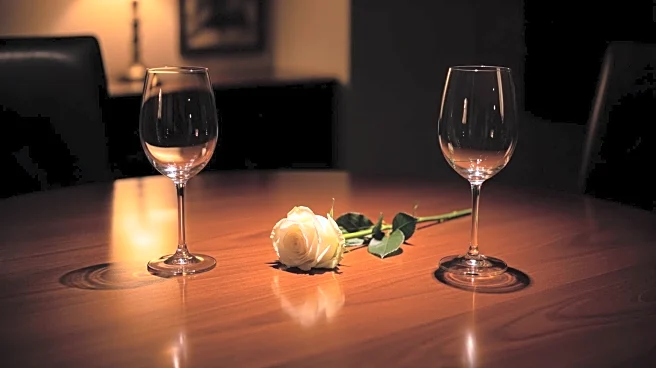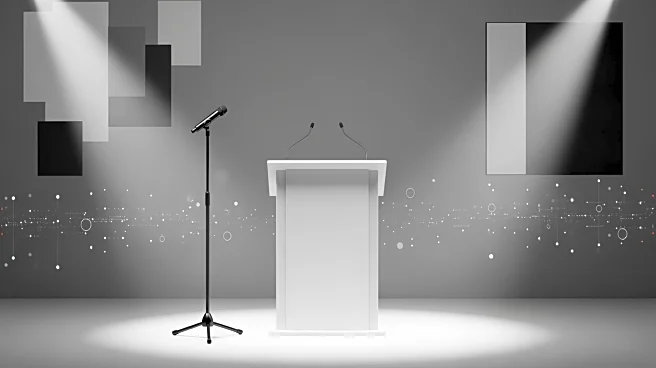What's Happening?
The National Finals Rodeo (NFR) is set to celebrate its 40th anniversary in Las Vegas, Nevada, from December 4-13, 2025. This event will honor the 1985 World Champions, marking four decades since the NFR moved from Oklahoma City to Las Vegas. The celebration will recognize the contributions of past champions, including notable figures such as Joe Beaver, Charmayne James, and Rob Smets. Smets, a 1985 World Champion Bullfighter, will be part of the commemoration despite initial reports suggesting otherwise. The NFR has become synonymous with Las Vegas, transforming the city into 'Cowboy Town' each December.
Why It's Important?
The 40th anniversary of the NFR in Las Vegas highlights the enduring popularity and cultural significance of rodeo in the United States. By honoring past champions, the event underscores the contributions of individuals who have shaped the sport. This celebration not only attracts thousands of fans to Las Vegas, boosting local tourism and economy, but also reinforces the city's identity as a hub for major sporting events. The inclusion of Rob Smets, despite changes in bullfighting's status within the PRCA, reflects the evolving nature of rodeo and its ability to adapt while honoring tradition.
What's Next?
The NFR's 40th anniversary celebration is expected to draw significant attention from fans and media, potentially influencing future rodeo events and their locations. As Las Vegas continues to host the NFR, discussions may arise about the city's role in the sport's future. The event could also spark interest in reviving or reimagining bullfighting within the rodeo circuit, given the historical significance of figures like Rob Smets. Stakeholders, including rodeo organizations and Las Vegas tourism officials, will likely evaluate the impact of this milestone on the sport's growth and popularity.
Beyond the Headlines
The commemoration of the 1985 champions at the NFR highlights broader themes of legacy and change within the rodeo community. As the sport evolves, the recognition of past champions serves as a reminder of the foundational figures who have contributed to its development. The event also raises questions about the future of traditional rodeo events, such as bullfighting, and how they can be preserved or adapted in modern contexts. This anniversary may inspire discussions on the ethical and cultural dimensions of rodeo, particularly in relation to animal welfare and the sport's portrayal in media.









